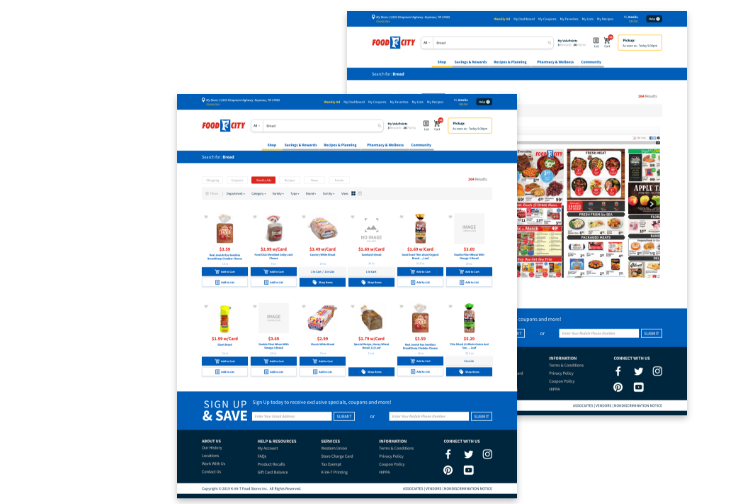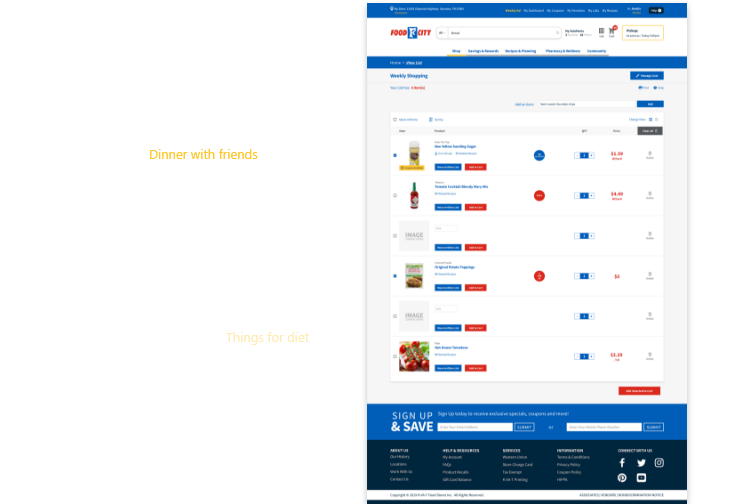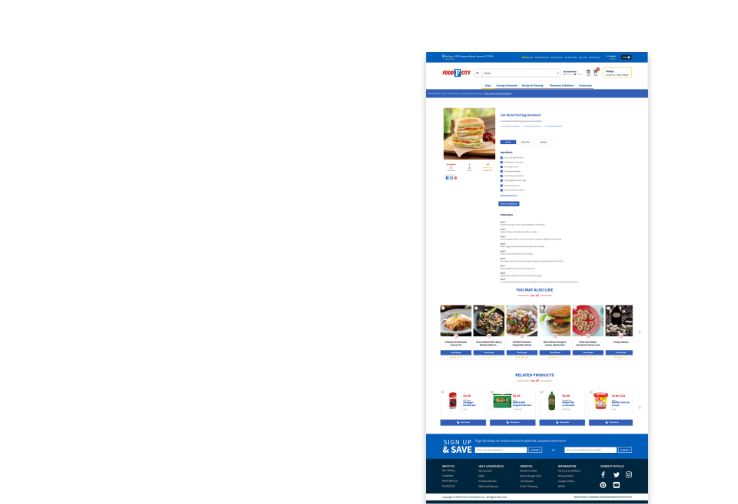
Wellness Club — Probiotic Supplements
Abingdon, VA. -
Tuesday, Apr 1, 2025.
Written by: Rebecca Webb, PharmD, Food City® Pharmacy Clinical Services Manager
What are probiotics?
Probiotics are live microorganisms (i.e., microbes), mainly including bacteria but also some yeasts. These microorganisms already live in and on your body. They are sometimes referred to as ‘good’ microbes. When administered or consumed in sufficient amounts they may have beneficial health effects.
What do probiotics do?
Probiotics work predominantly in your lower intestinal tract (i.e., gut). Some work topically on your skin and others work at additional locations within your body. These areas are home to a plethora of microorganisms (i.e., microbiome), both “good” and “bad.” An imbalance of these “good” and “bad” microorganisms has been associated with a range of health conditions including constipation, diarrhea, weight gain, skin rashes, yeast infections, and a suppressed immune system. Probiotics essentially help to prevent and treat this imbalance by fighting the “bad” or “harmful” microbes.
What are the potential benefits of probiotics?
It is important to note that not all probiotics are the same. Different types of probiotics display different types of functions. Health benefits depend upon the specific probiotic. Also, not every probiotic has demonstrated health benefits. Before starting a probiotic, talk with your health care provider about the specific health benefits you are seeking.
While there are no official recommendations for or against probiotic use in healthy individuals, probiotics may help to prevent or treat numerous health conditions and infections. They are thought to possibly help maintain a healthy gut, regulate bowel movements, boost your immune system, and lower inflammation. Probiotics may improve certain medical conditions including antibiotic-associated diarrhea (particularly within two days of starting the antibiotic), irritable bowel syndrome, inflammatory bowel disease (e.g., ulcerative colitis), general digestive issues, atopic dermatitis (i.e., eczema), acne, gum disease, and urogenital infections.
We are still learning about ways probiotics may advance health. There are likely additional benefits, but more research is needed.
What are the side effects or risks to probiotics?
In general, probiotics appear to be safe to use in healthy individuals. However, probiotics may not be safe in individuals with a weakened immune system or those who are seriously ill.
Potential side effects of probiotics may include gas or bloating. If these mild side effects occur, it is typically when starting the probiotic and they usually resolve on their own within a few days.
How do you obtain probiotics?
Probiotics are naturally found in some fermented food, such as yogurt (particularly Greek yogurt) and kefir (i.e., a fermented milk drink similar to a thin yogurt). Oftentimes, processing after fermentation can destroy probiotics naturally found in foods, so look for labels stating, “live and active cultures.”
Probiotics are also added to some food products, including milks, juices, cereals, and nutrition bars.
Probiotics are also available as over the counter dietary supplements, which are not regulated by the Food and Drug Administration (FDA). These dietary supplement products come in various forms such as capsules, powders, liquids, gummies, and topical lotions/creams. They are available as single live microorganisms or as multiple live microorganisms and are measured in colony forming units (CFUs). Probiotic microorganisms are uniquely identified by their genus, species, and sometimes even strain, as indicated on product labels:
• Lactobacillus acidophilus – Florajen® Acidophilus, Nature’s Bounty® Acidophilus Probiotic
• Saccharomyces boulardii – Florastor® Dual Action
• Bifidobacterium lactis/Lactobacillus rhamnosus – Phillips’® Colon Health®
• Bifidobacterium lactis/Lactobacillus acidophilus/Streptococcus thermophilus (among others) – VSL#3®
• Lactobacillus rhamnosus GG – Culturelle® Digestive Daily Probiotic
• Bacillus coagulans – Nature Made® Probiotics
• Bifidobacterium Longum – Align® Probiotic 24/7 Digestive Support
For probiotic dietary supplements, remember to check the storage requirements. Some require refrigeration while others can be stored at room temperature. Also make sure to check the expiration date or use by date. Always follow package directions and take the recommended dosage.
If you have any questions about probiotics, stop by and chat with our friendly Food City Pharmacists. We are available to assist you with your medication-related needs, including probiotic health.
References:
1. Probiotics. National Institutes of Health – Office of Dietary Supplements. https://ods.od.nih.gov/factsheets/Probiotics-Consumer/. Accessed March 3, 2025.












